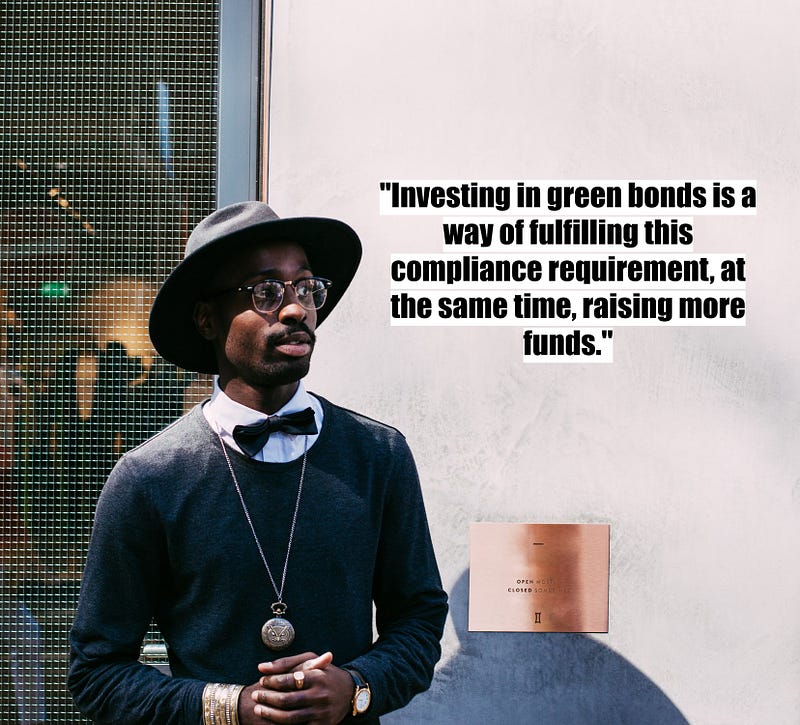Kenya ’s first Green Bond Starts Trading On Nairobi Securities Exchange
Kenya ’s first green bond was listed for trading on the Nairobi Securities Exchange on Monday, offering investors the chance to put money into an environmentally-friendly fixed income security for the first time in the Securities Exchange’s 65 year history. Green bonds raise capital for projects in renewable energy, energy efficiency, green transport and waste-water treatment.

The bond, worth Sh4.3 billion ($42.5m), was issued by Nairobi property developer Acorn Holdings last October to build student accommodation.
Read also:SWVL Launches Long-distance Trips In Kenya
“Our capital markets, our investors and indeed our government have started to take climate change seriously ,” said Kiprono Kittony, a member of the board of the Nairobi Securities Exchange (NSE).
“They will be listing the green bond also on the London Stock Exchange next week which is a first also to have a Kenyan shilling bond listed in the United Kingdom.”
What are Green Bonds and why are they even so important?
Read also:Ride-sharing Startup Little Suspends its Shuttle Operations For The Second Time in Kenya
Your company can raise money to finance its projects by issuing bonds to the public. Suffice it to say that loans are for individuals what bonds are for companies, government or government agencies. In any case, Green Bonds are bonds which are used to raise capital precisely for environmentally friendly projects i.e. projects that are climate friendly and leave little or no adverse effect on the environment. So whether your company desires to embark on investment in forestry, agriculture and aquaculture; solar power, wind power, hydropower; water treatment plants, water distribution infrastructure, water capture and storage; Green buildings (commercial real estate development) modern rail, Bus Rapid Transit (BRT) schemes, your company can raise money from the public by issuing/selling Green Bonds on the floor of the Nigerian Stock Exchange.

Green Bonds are different from ordinary bonds because any money raised from issuing the bonds to the public would only be used to finance new and existing projects with environmental benefits. In 2017, Nigeria issued its first ever Green Bonds worth USD 29.7m which were targeted towards solar energy projects, as well as national afforestation programs. The Securities and Exchange Commission, and the Federal Ministry of Environment, and the Federal Government through the Debt Management Office (DMO) have also doled out Green Bonds Issuance Guidelines.
Why Green Bonds Are Better.
They are Tax-Efficient
Once you purchase bonds of any type in Nigeria, for instance, there is no taxation on the interest earned by you on these bonds. This is because Section 33 of the Personal Income Tax Amendment Act 2011 (PITA) exempts from personal income tax, bonds issued by Federal, State and Local governments and their agencies; bonds issued by corporate and supra-nationals, and interest earned by holders of these bonds and securities.

In the case of a company , there is zero taxation on trading income generated from corporate or government bonds, treasury bills and other short-term securities. This is pursuant to Nigeria’s Companies Income Tax (Exemption of Bonds and Short-Term Government Securities) Order 2011 (CITA Gazette). However, these exemptions are only for a period of ten years — ending January 2022.
Hence with this, your company can save more of its funds from taxation.
Green Bonds Attract Investors Faster to Your Business

Investors are increasing looking for green bonds because they are a way of killing two birds at a time. Most companies are now required to be ESG (Economically, Socially and Environmentally) compliant. Investing in green bonds is a way of fulfilling this compliance requirement, at the same time raising more funds. This two-way approach makes green bonds more attractive to investors
Charles Rapulu Udoh

Charles Rapulu Udoh is a Lagos-based lawyer who has advised startups across Africa on issues such as startup funding (Venture Capital, Debt financing, private equity, angel investing etc), taxation, strategies, etc. He also has special focus on the protection of business or brands’ intellectual property rights ( such as trademark, patent or design) across Africa and other foreign jurisdictions.
He is well versed on issues of ESG (sustainability), media and entertainment law, corporate finance and governance.
He is also an award winning writer.
He could be contacted at udohrapulu@gmail.com

